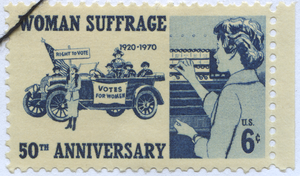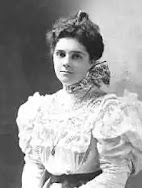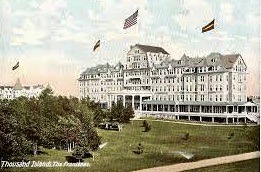By Matthew J. Elliott
To provide a little of background on why I selected this song. In truth, this is one song that is difficult for me to listen to. My father sang it at my mother’s memorial service in 2009 after cancer took her life much sooner than expected. While that is not a story for me to share with you in this post, knowing the story behind this song now gives me a much better understanding of the legacy ‘It is Well with My Soul’ has for us today.
If you can imagine with me for a moment, or two…what it was like to live in the 1870s. There were no phones, computers, TVs, or even any type of vehicle we’d consider using today. It sounds like something the word would never survive today, doesn’t it? Now, let’s dig even deeper. Travel with me to Chicago, one of the nation’s biggest cities, and a bustling economy filled with opportunities to build something worth investing in.
As we walk through the streets of this ever-growing environment, we find ourselves standing in front of a well-known district filled with thriving businesses and successful people living out their daily lives. Suddenly, everything changes! Out of nowhere, a huge, uncontrollable fire breaks out and changes everything. The once prosperous district is gone, and what’s more, the fire continues, killing hundreds of people and leaving a third of the population homeless.
The road ahead leads us to a man named Horatio Spafford. He is a well-known lawyer, who invested his entire fortune into Chicago real estate. Much of which was no longer there. Recognizing this, he looks up at his wife and their four daughters. His mind becomes filled with fear and worry. Considering this, the family makes plans to journey to England for some time to recover and heal from the monumental loss they all had just endured.
When the time comes to journey upon the sea to the old country, Horatio is unable to join his family because of other matters with the estate. He stays behind to tie up a few things and plans to join his family soon. As they depart, imagine his family waving to him from the ship as it leaves port and begins a journey it will never recover from. Along the way, their ship unexpectedly collides with another ship, resulting in the death of over 200 people, including his four daughters, at sea.
When peace like a river, attendeth my way,
When sorrows like sea billows roll—
Whatever my lot, thou hast taught me to know
It is well, it is well with my soul.
In the midst of this unprecedented storm, Horatio is given a gift. A promise that regardless of what he has faced, there is hope and it can be well with his soul. As the journey continued, he eventually reunited with his beloved, and things found a new routine once more. Nothing will ever be the same again, but there is something he can place his hope in. There is something he and his wife can hold on to.
There is a profound depth to the story that extends beyond what has been mentioned in this post. In truth, immense tragedy marks Horatio and Anna’s path. While the rest of his story speaks to the unexpected legacy they have left behind, it is not my place to continue sharing their pain. Feel free to look it up, though, because it adds to their legacy’s value. It is a powerful story to discover as well.
This article focuses on the message that was left behind. Horatio’s legacy, built through the words he wrote in the hymn we now call “It is Well with My Soul,” is meaningful to us all. The storms of life will always be there, doing everything they can to keep us from finding purpose in the pain and value of the trials we face. It is never easy to survive those storms.
Say what you will about the unexpected legacy of Horatio Spafford, but the proof is there. It is up to you to determine what you do with it. History has many stories that capture experiences like this, and each one has a lesson for us to learn from.
~ Biography ~
Matthew is happily married to Traci, and they have three children named Leyla, Caleb, and Hannah, who bring them immense joy and inspiration. As a writer, Matthew's goal is to share love, equip others, and edify them for the greater good. He loves connecting any amount of scripture to his stories and uses his knowledge of Biblical History to do so often.
You can find Matthew's works on Amazon, Goodreads, Facebook, and His Website. He has written Devotionals, An Episodic Series, Novellas, and even Commentaries for The Gospel Daily.
~ Highlighted Release ~
A Kindle Vella Story in progress, Read the first 10 episodes FREE!One Man. His Continued Journey. Working to Build the Early Church.
John Mark is haunted by his past, and there is one person he has never been able to reconcile with. Join him on his continuing missionary journey as he leaves Cyprus to search for Saul, now known as Paul, before the epic ending of his Missionary Journey in Cyprus. Who will he meet along the way and what lessons will he learn? Will this journey help him find the answers he seeks?












.jpg)



.jpg)


















